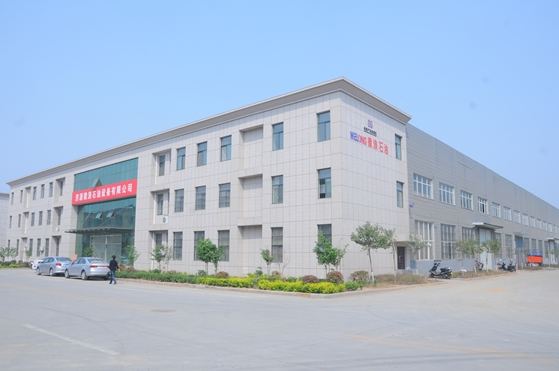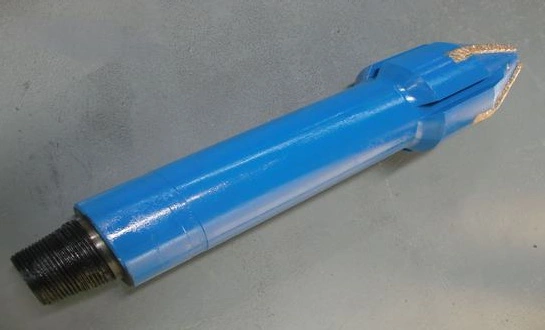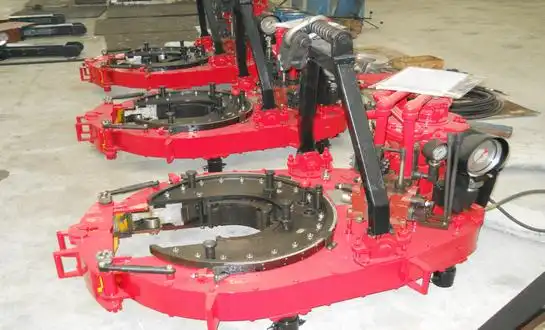The demand for custom backup roll designs stems from the diverse needs of different industries and applications. In sheet metal production for the automotive sector, backup rolls must withstand high pressures while maintaining strict tolerances. Similarly, in the construction industry, where structural elements and profiles are manufactured, backup rolls need to be designed to handle various materials and shapes. The electrical industry relies on precision-engineered backup rolls for the production of copper and aluminum foils, while the pipe and tube manufacturing sector requires rolls that can accommodate different diameters and wall thicknesses.
What Factors Influence Custom Backup Roll Design?
Material Selection and Composition
Choosing the right materials for backup rolls is essential for ensuring their performance and extending their service life. High-quality alloy steels are the go-to choice for backup rolls because they offer superior wear resistance and can withstand high temperatures without losing their hardness. These alloys are often designed to balance a variety of properties, such as hardness, toughness, and thermal stability, which can be fine-tuned based on the specific requirements of each rolling application. For example, some applications may prioritize wear resistance, while others may require increased toughness to withstand higher stresses. The composition of these materials is carefully engineered to meet these distinct needs, ensuring the backup rolls deliver reliable performance over extended periods.
Surface Treatment and Finishing
The surface characteristics of backup rolls play a crucial role in the overall quality of the rolled product. To improve wear resistance and reduce friction, advanced surface treatments like nitriding, chrome plating, or carbide coating are often applied. These treatments enhance the hardness and durability of the rolls, ensuring they can endure the harsh conditions of high-speed rolling operations. After surface treatments, the rolls undergo a finishing process that typically includes grinding and polishing. This ensures that the roll surface achieves the required roughness and dimensional accuracy, which is vital for maintaining consistent product quality. The combination of surface treatments and finishing processes helps prevent defects like surface cracks and pitting, which could otherwise impact both the rolls and the final product.
Thermal Management Considerations
Effective thermal management is a critical aspect of backup roll design, especially in high-speed or high-temperature rolling processes. The heat generated during rolling can cause significant thermal stress on the rolls, leading to issues like thermal fatigue, dimensional instability, and even premature wear. To combat this, advanced cooling systems are integrated into the roll design. These systems may include internal cooling channels, which circulate coolant to maintain a stable temperature, or external spray systems, which directly cool the roll surface during operation. It is also essential to consider the thermal expansion properties of the roll material, as differential expansion between the backup roll and work roll can lead to misalignment or dimensional distortions. By managing these thermal factors effectively, manufacturers can ensure that backup rolls perform consistently under varying operational conditions, enhancing both the quality and efficiency of the rolling process.
Top Providers of Custom Backup Roll Solutions
Industry Leaders in Backup Roll Technology
A number of well-established companies dominate the backup roll industry, setting the standard for innovation and performance. These industry leaders invest substantial resources into research and development, continually advancing the technology behind backup rolls. Their focus on innovation allows them to create a broad spectrum of solutions, ranging from traditional solid rolls to more sophisticated composite designs. By offering a diverse array of products, these companies are able to meet the varied needs of different sectors, such as automotive, steel manufacturing, and paper production. Their ability to adapt to changing market demands and incorporate cutting-edge technology ensures that they remain at the forefront of the industry, consistently providing high-quality and reliable backup rolls for critical industrial applications.
Specialized Niche Manufacturers
In addition to the major players in the industry, there are smaller, specialized manufacturers that cater to niche markets within the backup roll sector. These companies often have a deep focus on specific industries or applications, allowing them to deliver highly tailored solutions. For example, manufacturers who specialize in precision rolls for the electronics industry might produce rolls with incredibly tight tolerances, ensuring flawless performance in sensitive processes. Similarly, companies that focus on heavy-duty rolls for the steel industry may design products that can withstand extreme pressure and temperature fluctuations. By concentrating on these specialized areas, these manufacturers can offer unique designs and solutions that meet the very specific needs of their customers, filling gaps that larger companies may not be equipped to address.
Emerging Players and Innovators
The backup roll industry is also seeing the rise of innovative startups and emerging companies that bring fresh perspectives to roll design. These firms often leverage new technologies, such as advanced materials science or computational modeling, to create novel roll solutions. While they may not have the extensive track record of established players, their innovative approaches can lead to groundbreaking designs that address longstanding industry challenges.

Quality Assurance in Custom Backup Roll Fabrication
Advanced Testing and Inspection Methods
Quality assurance in backup roll fabrication involves rigorous testing and inspection processes. Non-destructive testing techniques, such as ultrasonic and magnetic particle inspections, are employed to detect any internal flaws or inconsistencies in the roll structure. Surface metrology tools are used to verify the dimensional accuracy and surface finish of the rolls, ensuring they meet the strict tolerances required for optimal performance.
Material Certification and Traceability
Ensuring the quality and consistency of materials used in backup roll fabrication is critical. Reputable manufacturers maintain comprehensive material certification processes, documenting the composition and properties of each batch of raw materials. Traceability systems allow for the tracking of materials throughout the production process, from initial casting to final machining, providing a complete history of each roll's fabrication.
Performance Validation and Field Testing
The ultimate test of a custom backup roll's quality is its performance in real-world conditions. Leading manufacturers often collaborate with end-users to conduct extensive field testing, gathering data on roll performance, wear rates, and impact on product quality. This feedback loop allows for continuous improvement in roll design and manufacturing processes, ensuring that each generation of rolls meets or exceeds industry standards and customer expectations.
Source: CHINA WELONG-Oilfield tools Manufacturer
FAQ about Backup Roll
What is the typical lifespan of a backup roll?
The lifespan of a backup roll can vary significantly depending on factors such as the application, operating conditions, and maintenance practices. In general, well-designed and properly maintained backup rolls can last anywhere from several months to a few years. However, in high-demand applications like steel mills, rolls may need to be replaced more frequently, sometimes after just a few weeks of continuous operation.
How often should backup rolls be serviced or refurbished?
The frequency of servicing or refurbishment for backup rolls depends on their usage and the specific requirements of the production process. As a general guideline, many manufacturers recommend a comprehensive inspection and potential refurbishment every 6 to 12 months. However, in high-volume or high-stress applications, more frequent servicing may be necessary. Regular monitoring of roll performance and surface condition can help determine the optimal service intervals.
Can backup rolls be customized for specific alloy processing?
Yes, backup rolls can be customized for processing specific alloys. This customization often involves selecting appropriate roll materials and surface treatments that are compatible with the alloy being processed. For example, when working with harder alloys, backup rolls may be designed with increased hardness and wear resistance. Additionally, the roll's surface finish and crown profile can be tailored to optimize the rolling process for particular alloy characteristics, ensuring consistent product quality and minimizing wear on the rolls.
In conclusion, custom backup roll design services are essential for industries seeking to optimize their production processes and maintain a competitive edge. By understanding the factors that influence roll design, choosing the right providers, and implementing rigorous quality assurance measures, businesses can ensure they receive backup rolls that perfectly fit their needs. For more information on custom backup roll solutions and other oilfield products, please contact us at oiltools15@welongpost.com. Welong, as a professional international integrated supply chain service provider, is committed to delivering the finest supply chain solutions from China, empowering industries worldwide with high-quality, customized products.





